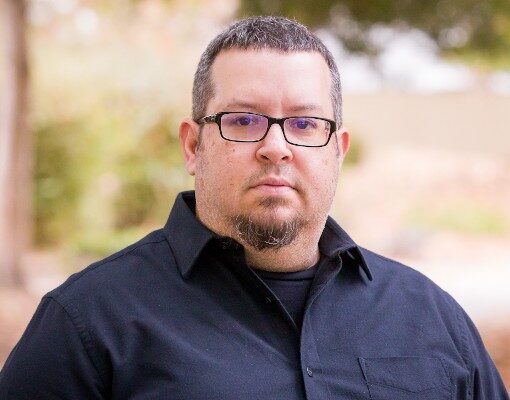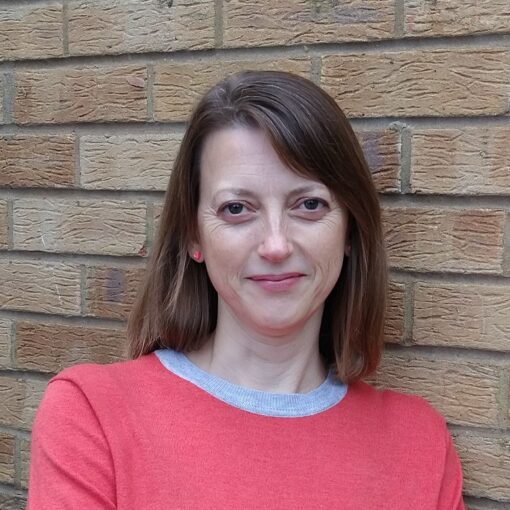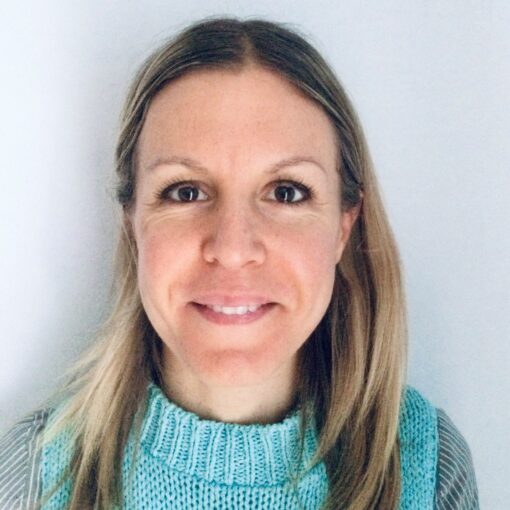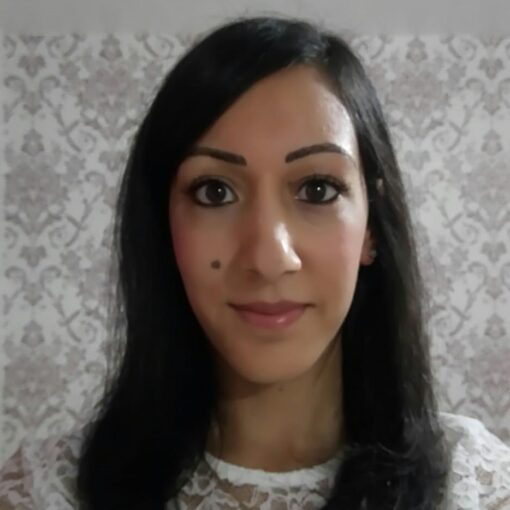DPhil, Molecular Microbiology, University of Oxford 2020
| Clinical Lead | |
|---|---|
| Nostics | |
Year entered into a non-academic position: 2022
Job highlight: helping the company grow by developing new clinical applications for its technology and ultimately make a big impact in primary care and de-centralized healthcare settings.
My research training set me up to… learn fast on the job!
Left academia after: After 1 years 6 months of postdoctoral work
What’s your background?
I am a molecular microbiologist with almost 10 years of dedicated research experience in the field, specializing in the genetics of multi-drug resistant pathogenic bacteria. My academic journey began with a degree in Biological Sciences, followed by a Master’s program in Molecular Biology and Genetics at Sapienza University in Rome, Italy. I then continued my studies in Prof. Tang’s Lab, at the University of Oxford, with a PhD in Molecular Microbiology and later a short departmental postdoctoral fellowship. During my time at Oxford, I studied the genetics of the multi-drug resistant bacterium Shigella and, particularly, I investigated ways of tackling Shigella’s ability to cause disease by engineering a CRISPR-Cas-based therapeutic method and Shigella vaccine candidates.
Why did you move away from academia?
Although I have always been passionate about science and enjoyed my time in the lab, I needed to see a more immediate and tangible impact of my work. Publishing research papers is a valuable way to share discoveries with the scientific community. However, years of dedicated research and numerous publications are required before research findings can be translated into impactful products for society.
Is there anything you miss about academia?
I certainly miss my bench and the hands-on scientific lab work. However, I don’t miss science as a whole because I still engage with it almost every day. Additionally, I miss the sense of sole ownership I had over my projects. Working in a company often means collaborating with teams, and while this undoubtedly eases the distribution of workload and responsibilities, it can also limit your independence and freedom.
How did you get this job? Did you face any challenges when considering a move away from academia or applying for the role?
During my last years in Oxford, I cultivated a strong interest in the use of new technologies for the diagnostics of bacterial infections. Studying the genetics of AMR clinical bacterial isolates made me realize how important diagnostics is for the prevention of AMR and how much innovation is needed in this field to improve processes that are currently old and ineffective. As Oxford has an exceptional start-up ecosystem, during the same years, I also started cultivating my interest in innovation by attending several initiatives that bridged science and business. I, in fact, became an I2I Fellow at the Said Business School, and a BSF Fellow at Wilbe Ventures. Thanks to these programs, I started exploring the world of start-ups and I became more and more conscious that this is the space where I wanted to be next. As a scientist coming from academia, I was not very familiar with the business aspects, but particularly I2I, BSF and friends in the field helped me gain essential practical business knowledge that boosted my confidence.
What motivated you to/why did you choose the sector you transitioned into?
Due to my scientific background, the biotech/medtech world has always interested me. In particular, I have always found fascinating how research, particularly in the field of infectious diseases, is translated into novel medical solutions, ultimately reaching the patients’ bedside. I see startups as essential players in this innovation process since they are the bridging element between cutting-edge research and industrial applications.
Did you think you had the skills required for your current position before you started? Were you right?
Starting a new role in an entirely unfamiliar sector can certainly cause lack of confidence in your abilities, and I won’t deny that I had my moments of self-doubt.
But I always maintained a sense of confidence that 4 years of PhD and almost 10 years of research must have equipped me with some hard, transferable skills that could be valuable for my new role.
I found it indeed to be right. My background in microbiology particularly helped me. I was able to quickly understand the space of bacterial diagnostics, and effectively communicate with clinicians and hospitals.
How did your PhD prepare you for your current job? For example, what were the transferable skills that you developed during your PhD that are most relevant to your current job?
I think the PhD is an incredible training experience that allows you to develop very important hard skills. Problem solving, communication, project management, multi-tasking and resilience are for me the most important and transferable ones.
Did you have any preconceptions about your sector that proved to be wrong?
Before joining the start-up where I currently work, I had the misconception that in industry the room for basic research would be limited or none. Especially in startups I found this preconception to be wrong.
The more novel the technology, the more essential research becomes to gain better scientific and technical insights into its development.
Can you describe a typical week in your job?
The work in startups is generally very dynamic and at a fast pace, thus every week is often different.
We generally have a kick-off company meeting every Monday and I have around 3 fixed weekly meetings with different members of the team throughout the week. There are generally additional meetings with other colleagues that are scheduled ad hoc to discuss, or work together on specific projects (e.g. grant proposals, presentations, preparation of specific company documents). I then spend the rest of my time on other tasks (writing, reading papers, doing research and interviews) that are necessary to complete the quarter’s objectives and key results.
What is the workplace culture like? Please include comments on work-life balance, flexibility, remote working?
I find my workplace culture great! It is a young, vibrant and stimulating environment where everyone shares a profound passion for their work and ultimately the company’s mission. Most of the people work remotely one/two days per week and there is also strong respect for people’s time outside the workspace. I am often reminded by my bosses not to work too much and have a life outside the office!
There is also a strong team spirit. Every day most of the team have lunch together and especially on Fridays we use our office airfryer for typical Dutch kroketten and bitterballen.
Do people with a PhD frequently get hired in the company/sector?
Absolutely, especially for senior roles in R&D.
What are your favourite parts of your job?
One of my favorite aspects of my job is that I fill a role that is at the intersection between R&D and business. This allows me to bridge the gap between scientific research and business strategy, which I find very stimulating. I get to contribute to both areas, ensuring that our scientific innovations are effectively translated into practical applications. Interacting with hospitals and doctors is another aspect that I enjoy very much. I find collaborating with healthcare professionals invigorating and satisfying because it provides insights into how our work can truly impact patient outcomes and healthcare practices in the real world.
Finally, I still do a lot of scientific writing, such as drafting grant proposals, white papers, and conference abstracts. I always enjoyed writing when I was in academia.
Do you have any advice for current graduate students and postdocs considering a career outside of academia?
The beauty of academia is that it provides you with a complete toolkit of skills that allows you to do potentially everything. The difficulty is then to choose the right path that fits you best and most importantly that you like. So, my advice is to take your time to consider and analyze all the options. Have as many interviews as possible, since, in my experience, this is a great way to understand if a specific job role is for you. And then try those that seem to you more appealing.
Remember that you are never “married” to a job and you can always change the role/organization or go back to academia.
What do you know now that you wish you’d known when exploring a transition?
Exactly what I stated in my answer above.
Can you recommend any relevant resources, organisations or events that might help somebody new to the sector find out more about it?
I would definitely advise anyone interested in innovation to apply for the I2I programme organized by the Said Business School. For scientists interested in entrepreneurship, I would recommend the courses organized by Wilbe. They are extremely useful especially for the practical business skills they teach and the inspiring network of scientist-entrepreneurs, operators and investors they have. And for female early career researchers interested in exploring career paths in STEM subjects outside of academia, the Oxbridge RisingWISE programme is very inspiring and motivating.
 Nostics is an Amsterdam-based start-up that is motivated to provide the world with fast, affordable and accessible diagnostic solutions for infectious diseases. Based on Nobel-prize winning Raman spectroscopy, advanced nanotechnology and AI, in an easy-to-use, handheld device, Nostics’ technology platform can detect and identify bacteria in less than 15 minutes – ensuring the right treatment at the right time.
Nostics is an Amsterdam-based start-up that is motivated to provide the world with fast, affordable and accessible diagnostic solutions for infectious diseases. Based on Nobel-prize winning Raman spectroscopy, advanced nanotechnology and AI, in an easy-to-use, handheld device, Nostics’ technology platform can detect and identify bacteria in less than 15 minutes – ensuring the right treatment at the right time.
Are you interested in knowing more? Visit https://nostics.com or get in touch by contacting info@nostics.com.
We are always happy to explore internship opportunities with early career researchers, especially with a background in Nanotechnology, Biotechnology, Material Sciences, Clinical Microbiology, and Electronic Engineering. Internship projects are generally conducted with the R&D team (e.g. technology development) or the Business Development team (e.g. market research).





